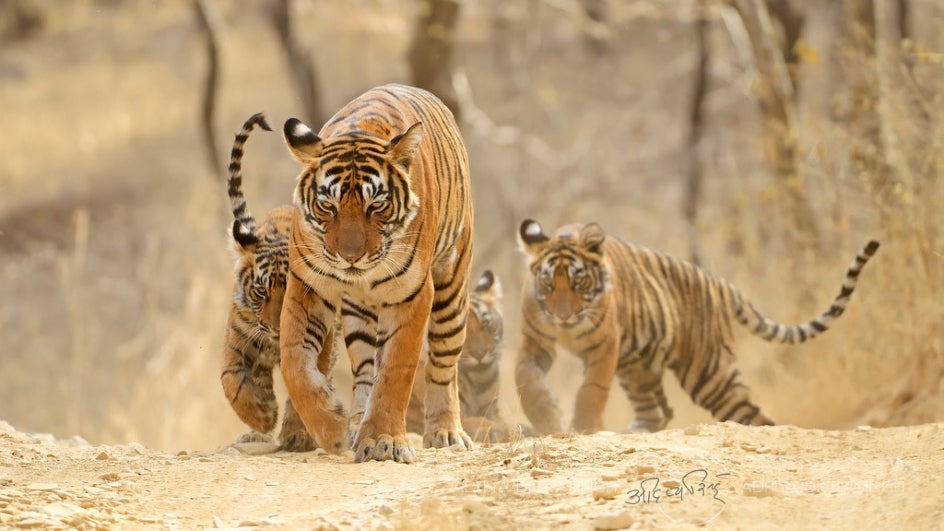On Sunday evening, a dead tigress was found inside the Bandhavgarh Tiger in the Umaria district of Madhya Pradesh. The tigress death has increased; six in two weeks while 15 death in 4 months.
The dead body of the tigress was being spotted by patrolling team near the Dhamokhar buffer area. Forest officials have been informed about this incident, and a male adult tiger is suspected of killing the tigress. Tigress's body was injured badly. The tigress was eight to a nine-month year old.
Forest officials claim that 11 tigers have died within tiger reserves whereas in road accidents four tigers were reported dead.
Reportedly there were many cases of tiger death in the past in other national parks as well. The government of National parks in different states is working to eliminate death cases.
Madhya Pradesh has a good number of tiger reserves, including Kanha, Bandhavgarh, Pench, Satpura, and Panna. MP Government is analyzing the reason behind such an increase in tiger death and working on the same in full swing. Therefore, the national park will remain a protected and safe haven for wild animals and tigers.
According to wildlife activist Ajay Dubey, MP has been reporting the number of tigers killed at an excessive rate because of field officers' lack of responsibility. He also maintained that during the summer, the increased number of tiger death or other wild animals due to diverse grounds.
Due to extreme heat during the summer, the activeness of forest officers reduces whereas in the autumn season tiger visibility is more often than other times of the year. There are multiple reasons and among them, one of the reasons is that wild animals come out of their heaven often to drink water in ponds, and rivers so they become an easy target for poachers.
Kanha, Bandhavgarh, Pench, Satpura, and Panna are the most visited national parks of Madhya Pradesh. Tigers and other wild animals are the assets of these national parks so the best action needs to be taken by MP Government for eradicating poaching.

